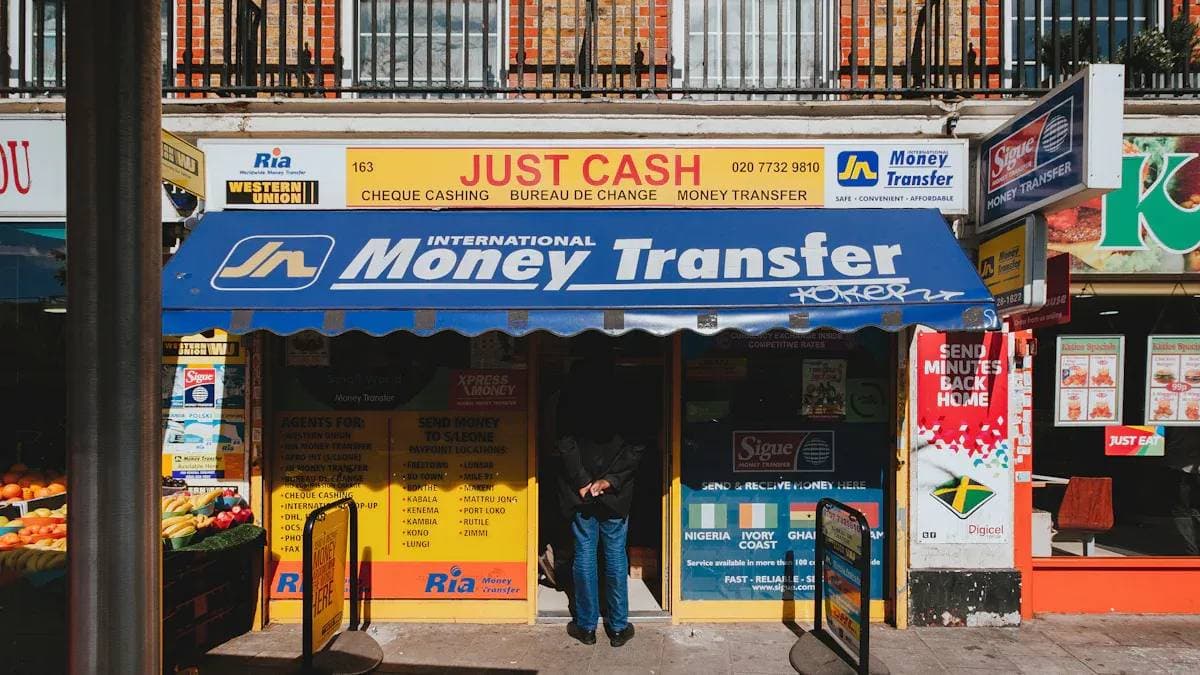- EasyCard
- Trade
- Help
- Announcement
- Academy
- SWIFT Code
- Iban Number
- Referral
- Customer Service
- Blog
- Creator
Why are large transfer accounts frozen? What are the impacts and solutions?
When making large transfers, account freezing is a common but headache-inducing problem. This not only affects the timely arrival of funds, but may also lead to serious economic and legal consequences. Next, let’s learn more about account freezing.

Reasons for freezing large transfer accounts
Account freeze is usually caused by the following main reasons:
Anti Money Laundering Act (AML) and Counter Terrorism financing Act (CTF)
Financial Institutions in various countries are strictly regulated by anti-money laundering and anti-terrorism financing laws. When large amounts of funds are transferred in or out, banks will conduct strict scrutiny. If any suspicious activities are found, such as unclear sources of funds, frequent transactions, and no obvious commercial purposes, banks may freeze accounts for further investigation.
Failure to comply with regulations and reporting requirements
When it comes to cross-border transfers, countries have strict regulations on the declaration of large amounts of funds. For example, the US FBAR (Overseas Bank and Financial Account Declaration) requires US taxpayers to declare if they have more than a certain amount of funds abroad. Failure to declare as required may result in account freezing.
Incorrect or incomplete account info
When making large transfers, if the provided recipient account info is incorrect or incomplete, the bank may temporarily freeze the account until the problem is resolved. Ensuring accurate information is the key to avoiding such problems.
International sanctions and prohibitions
If the country or region where the funds are transferred in or out is subject to international sanctions or bans, the relevant accounts may be frozen. For example, the financial sanctions imposed by the US on some countries and regions may lead to related transactions being blocked.
The impact of freezing large transfer accounts
Capital flows are blocked
Account freezing can lead to the inability to transfer funds in a timely manner, affecting the flow of funds for enterprises and individuals, especially in cases of urgent need for funds, which may have serious consequences.
Credit losses
An account freeze could affect an individual’s or business’s credit history, causing difficulties in future financial transactions.
Legal and economic consequences
Failure to declare large amounts of funds or suspected illegal activities as required may result in legal proceedings and high fines, and in serious cases, may even face legal responsibility.
Methods to solve account freeze
Timely provision of required documents
When a bank freezes an account, it usually requires a series of documents to prove the legitimacy and source of the funds. Providing these documents in a timely manner and cooperating with the bank’s investigation is the first step in resolving the account freeze.
Comply with regulations and declare in advance
Ensure that all large fund transfers comply with relevant regulations and make necessary declarations in advance. Understanding the legal requirements of the target country can avoid many unnecessary troubles.
Maintain good communication with the bank
Maintain good communication with the bank, understand the specific reasons for account freezing, and actively cooperate to solve the problem. The bank usually provides detailed guidance to help customers unfreeze their accounts.
Hire professional consultants
Hiring a professional legal or financial advisor is a wise choice when encountering complex legal and financial issues. They can provide professional advice and solutions to help you quickly unfreeze your account.
Choose the appropriate transfer channel
Use reputable Financial Institutions for large transfers and understand their specific processes and requirements to avoid account freezing due to improper selection.
Or choose some platforms for large transfers, such as BiyaPay, which is an international wallet for global multi-asset transactions, supporting real-time exchange rate queries and exchanges for more than 20 legal currencies and more than 200 digital currencies. You can transfer money anytime, anywhere in most countries or regions around the world, and the account arrival speed is fast, the handling fee is low, and the amount is unlimited, which can effectively avoid the risk of account freezing .
Conclusion
Large transfer account freezing is a complex and common problem. Understanding its causes, impacts, and solutions can help us better deal with this challenge. By complying with laws and regulations, ensuring accurate information, maintaining good communication with banks, and seeking professional help when necessary, we can effectively reduce the risk of account freezing and ensure that funds arrive safely and smoothly at their destination.
*This article is provided for general information purposes and does not constitute legal, tax or other professional advice from BiyaPay or its subsidiaries and its affiliates, and it is not intended as a substitute for obtaining advice from a financial advisor or any other professional.
We make no representations, warranties or warranties, express or implied, as to the accuracy, completeness or timeliness of the contents of this publication.




Contact Us
Company and Team
BiyaPay Products
Customer Services
is a broker-dealer registered with the U.S. Securities and Exchange Commission (SEC) (No.: 802-127417), member of the Financial Industry Regulatory Authority (FINRA) (CRD: 325027), member of the Securities Investor Protection Corporation (SIPC), and regulated by FINRA and SEC.
registered with the US Financial Crimes Enforcement Network (FinCEN), as a Money Services Business (MSB), registration number: 31000218637349, and regulated by FinCEN.
registered as Financial Service Provider (FSP number: FSP1007221) in New Zealand, and is a member of the Financial Dispute Resolution Scheme, a New Zealand independent dispute resolution service provider.




















